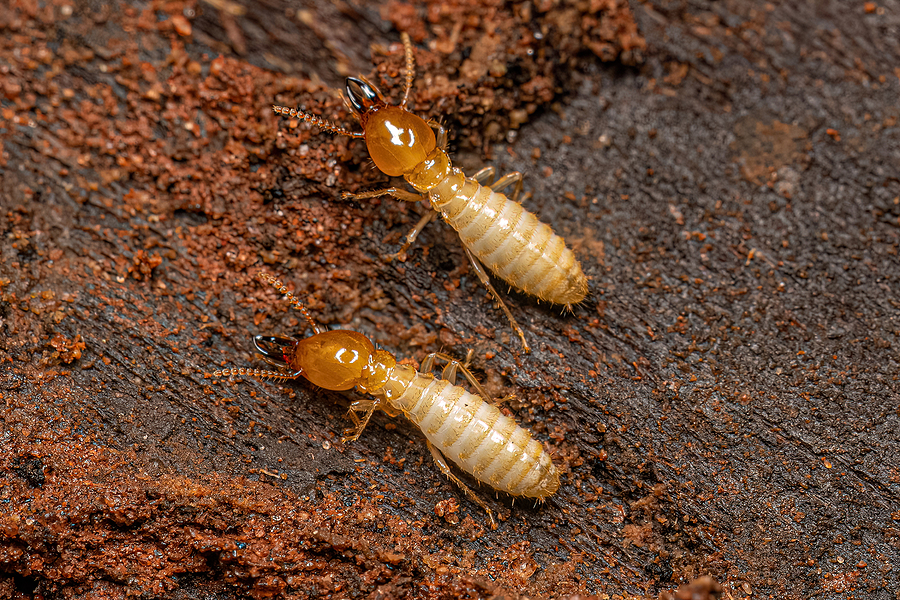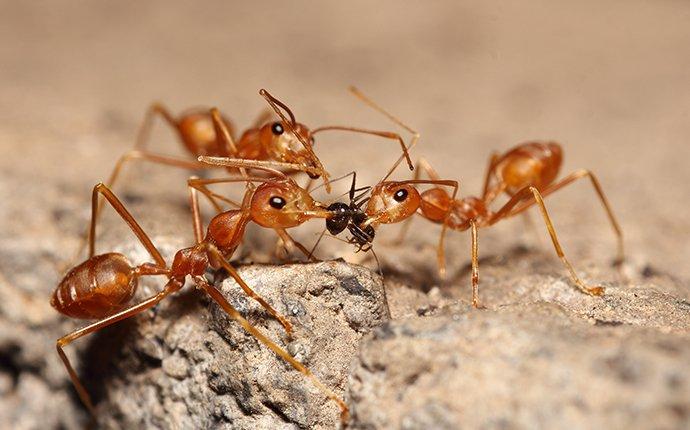Advanced Termite Control: Proven Methods for Removing Termite Infestations
Advanced Termite Control: Proven Methods for Removing Termite Infestations
Blog Article
Ecological Effect of Insect Control: Harmonizing Efficiency With Sustainability
The ecological influence of bug control is a critical problem that requires a fragile equilibrium between attaining efficiency in ensuring and handling insects sustainability of our ecological communities. As we make every effort to shield our plants, homes, and health and wellness from the hazards presented by insects, the techniques we use can inadvertently harm the atmosphere. From making use of hazardous chemicals that permeate right into our soil and water to the unexpected consequences on non-target types, the repercussions of conventional pest control practices are far-ranging. Nevertheless, there are arising techniques that supply hope for a much more lasting approach to pest administration. These options not just goal to attend to the instant bug troubles but additionally consider the long-term health of our earth.
Dangerous Chemicals in Insect Control
The use of dangerous chemicals in insect control postures substantial environmental and health dangers that necessitate mindful consideration and mitigation approaches. Chemicals, pesticides, and herbicides are typically made use of to eradicate insects, yet their widespread application can result in unexpected effects. These chemicals can contaminate dirt, water resources, and the air, impacting not only the targeted parasites but additionally helpful pests, wildlife, and human beings.

To address these dangers, integrated parasite management (IPM) techniques are being advertised as a more sustainable option. IPM involves a combination of approaches such as organic control, environment control, and the targeted usage of chemicals as a last resource (ant control clayton nc). By embracing a holistic technique to pest control, we can decrease the environmental and wellness effects connected with damaging chemicals while effectively taking care of pest populations
Influence On Non-Target Variety
Taking into consideration the unplanned repercussions of parasite control methods, the effect on non-target species is a crucial aspect that calls for detailed assessment. While pest control actions aim to target certain insects, other microorganisms in the community may be accidentally impacted. Non-target varieties, including useful bugs, birds, mammals, and even plants, can experience direct or indirect damage from chemical applications or organic control approaches.
Pesticides created to combat a specific bug parasite may harm pollinators like bees or all-natural predators such as ladybugs. Organic control representatives, if not species-specific, can pose dangers to unplanned targets, interrupting the eco-friendly balance.
To minimize the effect on non-target types, integrated bug administration (IPM) approaches that emphasize a holistic approach to pest control are suggested. These techniques prioritize using eco-friendly practices, lessening damage to advantageous microorganisms while efficiently handling pest populations. Performing complete risk analyses and checking the outcomes of insect control initiatives are vital actions in safeguarding non-target types and promoting overall ecosystem health.
Soil and Water Contamination
Unexpected ecological repercussions of pest control methods extend past influencing non-target species, with considerable ramifications for soil and water contamination - termite control services. Pesticides, herbicides, and chemical plant foods used in bug control can leach right into the soil and contaminate groundwater, presenting a threat to both earthbound and marine ecosystems.
Water contamination is an additional essential concern associated with pest control methods. Runoff from farming fields treated with chemicals can bring these chemicals into neighboring water bodies, affecting water organisms and water top quality. Pollutants in water resources can have significant consequences, influencing not just water life however additionally human wellness via the usage of polluted water or water organisms. To reduce soil and water contamination from insect control activities, integrated bug monitoring methods that prioritize sustainability and minimize chemical inputs are vital.
Air Air Pollution From Pesticide Usage
Direct exposure to airborne pesticides throughout farming applications presents a considerable worry for air pollution control actions. When chemicals are sprayed onto crops, they can volatilize into the air and form unpredictable natural substances (VOCs) and various other air-borne contaminants. These chemicals can add to the development of ground-level ozone, a major part of smoke that can have damaging effects on human wellness, crop productivity, and overall air quality. Additionally, chemical drift, where chemicals are lugged by the wind to unintended locations, can cause the contamination of neighboring ecosystems and water bodies.

Approaches for Sustainable Pest Control
In the realm of agricultural practices, implementing lasting bug control methods is extremely important for keeping environmental balance and protecting plant returns. Lasting parasite control stresses the use of eco pleasant techniques to manage bug populations effectively while decreasing injury to non-target organisms and ecosystems. Integrated Pest Management (IPM) is an extensively adopted technique that combines organic, social, physical, and chemical control techniques to achieve lasting bug monitoring options.
One key method in lasting parasite control is promoting biodiversity within agroecosystems. By boosting natural adversaries of pests, such as predators and parasitoids, farmers can decrease the demand for synthetic chemicals. Crop rotation and diversification are also effective techniques to interfere with pest life process and develop much less favorable problems for insects to flourish. In addition, using pest-resistant plant varieties and utilizing strategies like trap cropping can help in reducing bug pressure without depending greatly on chemical interventions. Eventually, by incorporating these lasting insect control methods, farmers can attain an equilibrium in between pest monitoring effectiveness and ecological stewardship.
Conclusion
Finally, the ecological effect of bug control methods have to be very carefully considered to balance efficiency with sustainability. Hazardous chemicals made use of in parasite control can bring about soil and water contamination, air contamination, and harm non-target species - termite control services. It is vital to apply sustainable parasite control approaches to minimize these adverse effects on the setting and advertise a much healthier community for future generations
By adopting an all natural strategy to pest control, we can lessen the environmental and health and wellness influences associated with harmful chemicals while successfully managing pest populations.

To alleviate the air pollution created by pesticide usage, it is important to adopt incorporated bug monitoring approaches that focus on the usage of non-chemical bug control techniques, such as plant rotation, natural predators, and resistant plant selections. Lasting pest control highlights the use of ecologically pleasant techniques to handle parasite populations successfully while reducing damage to non-target organisms and ecological communities. Integrated Pest Management (IPM) is a widely adopted strategy that combines biological, cultural, physical, and chemical control approaches to attain lasting insect monitoring options.
Report this page